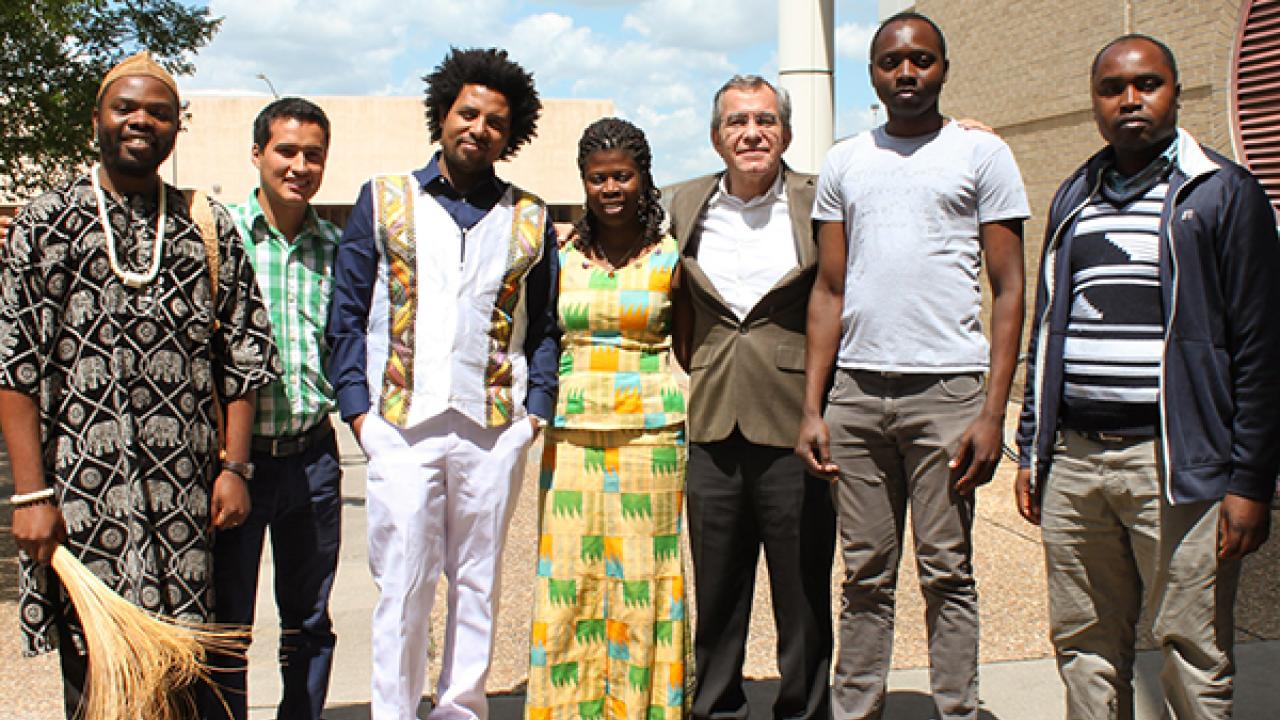
After graduation, ICTP wants to see all of its Postgraduate Diploma students succeed in PhD programs across the globe. That overarching program goal is why it is so encouraging to see the success of a memorandum of understanding with the University of Houston Physics Department, which has matriculated several ICTP Diploma students every year since 2010.
The Postgraduate Diploma Program was set up to provide pre-PhD training to bright young scientists hailing from developing countries. These students spend a rigorous year training in their chosen field before heading to PhD programs around the world. With as intense a year as the Diploma Program is, it can be difficult to prepare PhD applications at the same time, which is where the support of Dr. Carlos Ordonez begins to be invaluable.
Dr. Ordonez is an associate professor of physics at the University of Houston and a longtime member of the ICTP community, as well as the promoter and director of the ICTP/UH student program. With the assistance of his department's former and current chairmen, Dr. Ordonez assists Diploma students throughout the application process. The partnership between UH and ICTP began with the joint idea of Dr. Ordonez and ICTP's current director, Fernando Quevedo, back in 2009. "Both of us were trying to promote ICTP in this part of the world," says Ordonez.
Ordonez's and UH's crucial support can take many forms, but a key one is logistical. Thanks to confidence in ICTP's level of quality science and professionalism, UH has waived the requirement for the GRE test. Application deadlines are another way UH is flexible in order to best help Diploma students, stretching to help individual students. "We do a lot of outreach here, mentoring to people who didn't have the first steps golden plated," says Ordonez.
This program of flexibility and support has just graduated its first students, two former Diploma students who arrived in Houston in 2010. Keshav Shrestha and Merzu Belete both thrived in Houston and have since moved on to post-doctoral positions. "I'm really grateful to Doctor Carlos- this program is working pretty well. Houston is a really good place with lots of great research going on," says Shrestha, whose PhD supervisor was renowned physicist Paul Chu.
The grounding that the Diploma Program gave them served Shrestha and Belete well. "ICTP students already have a capability and experience doing research," when they start their PhD, says Shrestha. But in addition to the quality of the program, the theoretical training ICTP students get is vital, says Ordonez. "A lot of people say, why do these people need to be trained theoretically? They need to go to a lab."
But Ordonez has found that the opposite is true. "Most students end up doing some sort of experimental work, and some, like Shrestha and Belete, actually did a combination, with experiments but also there's a great deal of theory in what they do, because it's really cutting edge stuff," Ordonez explains. "Their backgrounds in theory were essential for their success." Shrestha agrees. "We are so well trained in ICTP, we can do any kind of research," he says.
Currently, the University of Houston hosts six of these well-trained former Diploma students, with at least two or three more arriving in the fall. And they are turning into a supportive community of their own, despite their diverse scientific interests. Ordonez has held two mini-conferences for the former Diploma students at Houston to showcase their research and to foster networking and discussion.
Ordonez would like to see a lot more of this type of mentoring. "My effort is about continuity, about mentoring them. Of course you have to let them grow, to let them have some obstacles, and Shrestha and Belete have done incredibly well, but even after they graduate it's a continuous process." Beyond individual mentoring, Ordonez would like to see the students' success spread through the establishment of connections between these students and their home countries. "This follow up and support is not just about individuals, but also building connections with these students' own countries, which ICTP is also about," says Ordonez. Shrestha agrees, adding, "If ICTP maintains connections with Diploma alumni through conferences, workshops, collaborations or any other scientific activities, that would further help to build our scientific career."
The good news is there's a lot of encouraging success to build future connections on. Shrestha is now a post-doctoral associate at Idaho National Laboratory--one of the top US research facilities--studying superconductivity, and is already writing two papers, while Belete has gone into computational biophysics, working on cancer genome and drug-resistance modeling at the Cancer Institute of New Jersey. The current class of PhD candidates is equally ready to start thriving scientific careers. With luck, this success could turn into many more accomplished scientists and fruitful connections launched thanks to the partnership between Ordonez's program and ICTP.
--Kelsey Calhoun
















